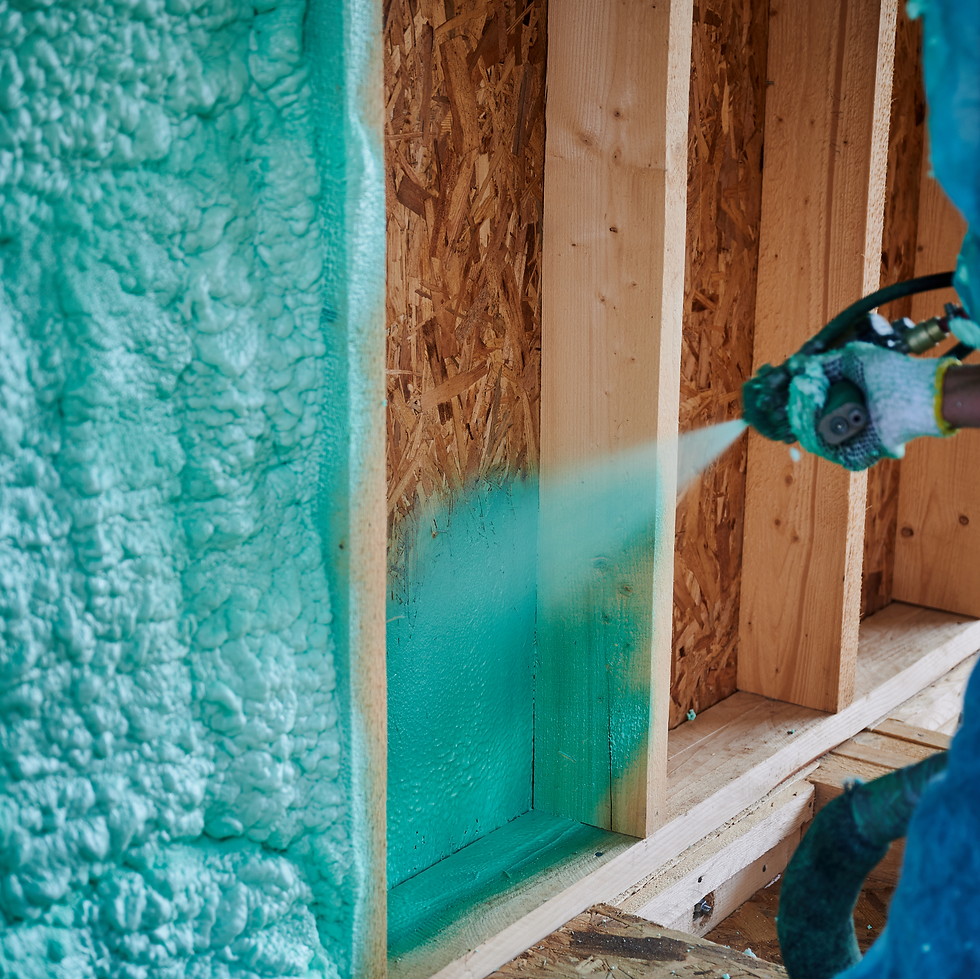Holiday Kitchens = High Humidity: Control Moisture with a Tighter Envelope
- Innovative Insulation

- Nov 21, 2025
- 3 min read

Table of Contents
The Hidden Side of Holiday Gatherings
Why Humidity Rises Indoors During the Holidays
How Spray Foam Helps Control Moisture
Protecting Your Home from Condensation & Mold
Improving Air Quality and Comfort
Final Thoughts
The Hidden Side of Holiday Gatherings
The holidays bring warmth, family, and food—but they also bring something less festive: humidity spikes. With more people cooking, cleaning, showering, and simply breathing indoors, the air fills with moisture.
Excess humidity can make your home feel stuffy, fog up your windows, and even lead to mold growth in walls and ceilings. A little moisture might not seem like much, but over time, it can damage drywall, flooring, and insulation if it’s not controlled.
Why Humidity Rises Indoors During the Holidays
Between roasting turkeys, baking pies, running dishwashers, and heating the home, your household moisture levels can increase by 20–40% in just a few days. Common sources include:
Cooking & Boiling Water – Steam adds gallons of moisture to indoor air.
Showers & Laundry – Multiple guests mean more hot water use.
More Occupants – Each person exhales water vapor throughout the day.
Heating Systems – Warm air holds more moisture than cold air, intensifying condensation on cool surfaces.
When that moisture meets cold walls or poorly insulated windows, it condenses into water droplets—the first sign of excess indoor humidity.
Spray foam insulation does more than keep your home warm—it also helps regulate humidity by sealing out air leaks that allow moisture to move freely between indoor and outdoor spaces.
Here’s how it makes a difference:
Air Sealing Barrier: Prevents humid indoor air from reaching cooler surfaces where condensation can form.
Vapor Resistance: Closed-cell spray foam provides an extra layer of protection against moisture intrusion.
Consistent Temperature: Reduces cold spots along exterior walls, minimizing the surfaces where moisture can condense.
According to the U.S. Department of Energy, proper air sealing and insulation are critical for controlling indoor humidity and maintaining healthy air quality (Energy.gov – Air Sealing).
Protecting Your Home from Condensation & Mold
Excess humidity doesn’t just cause foggy windows—it can encourage mold growth in hidden areas like wall cavities and attics. Mold thrives in moist, poorly ventilated environments, especially where warm indoor air meets cold exterior surfaces.
Spray foam insulation helps prevent this by eliminating gaps and cold bridges that lead to condensation. Pairing spray foam with proper ventilation and dehumidification ensures a comfortable, healthy indoor environment year-round.
For more on moisture and home protection, check out our blog: How Spray Foam Insulation Helps Prevent Ice Dams and Moisture Damage.
A tightly sealed home doesn’t just regulate temperature—it keeps your air cleaner. Spray foam insulation helps block dust, pollen, and other airborne pollutants from entering through small leaks or cracks.
Combined with proper ventilation, this improves indoor air quality and ensures that humidity and airborne particles stay balanced, even during busy holidays. Your guests breathe easier, your home smells fresher, and your comfort stays consistent.
Final Thoughts
This holiday season, give your home the gift of comfort and protection. Spray foam insulation helps you control humidity naturally, reduce energy costs, and keep mold at bay—so you can focus on what matters most: family, food, and warmth.
📞 Call Innovative Insulation today at (845) 319-9169 or visit www.sprayfoamhv.com to learn how to make your home more comfortable this winter.








Comments